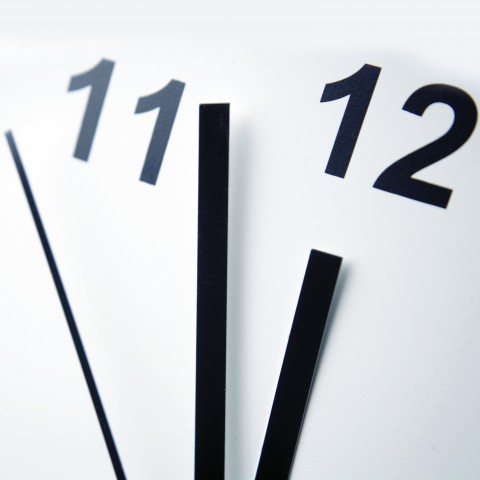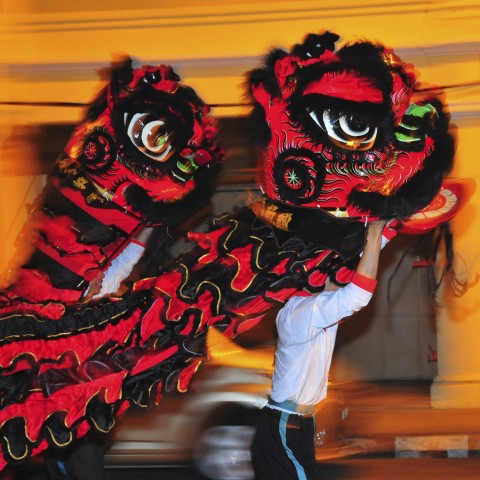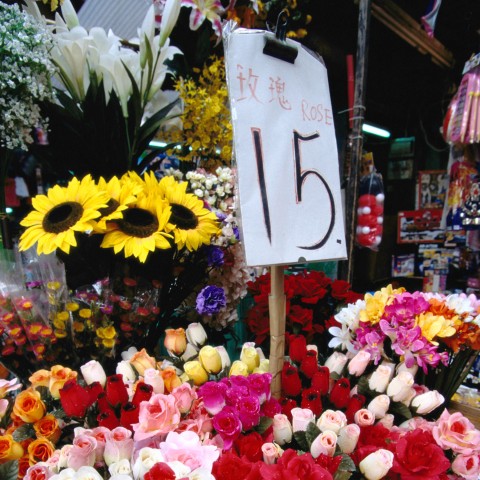As opposed to the Gregorian New Year, the Chinese celebrate the Lunar New Year. This involves an array of Chinese New Year celebrations which are unique to the Chinese culture. By learning more about the Chinese New Year, you’re not only giving yourself a foothold in learning the language, but you’re showing respect for the country.
Learn more about Chinese New Year traditions, along with other Chinese New Year facts, with ChineseClass101.com!
1. What is Chinese New Year’s?
The Chinese New Year is considered the most important festival in China. The last night of the lunar year is called 除夕 (chúxī), which means New Year’s Eve, and is usually celebrated within the family. On some occasions you may also hear the phrase 小除夕(xiǎo Chúxī)meaning a “small New Year’s eve,” and it refers to an evening that people usually spend with different family members and friends.
These two eves are celebrated with different family members or friends. The very beginning of the new lunar year is called 大年初一 (Dànián chūyī) which means “the first day of the year.” The first full moon, which takes place during the first month on the fifteenth day, is when the Lantern Festival or 元宵节 (Yuánxiāojié) is held, and between the Spring Festival and the Lantern Festival, every day has different customs and practices.
2. When is the Chinese New Year?
The Gregorian date of this holiday varies each year based on the Chinese lunar calendar. For your convenience, here’s a list of the Chinese New Year’s dates for the next ten years.
- 2019: February 5
- 2020: January 25
- 2021: February 12
- 2022: February 1
- 2023: January 22
- 2024: February 10
- 2025: January 29
- 2026: February 17
- 2027: February 6
- 2028: January 26
3. How is it Celebrated?
Before New Year’s Eve, many things must be taken care of properly. First and foremost, the whole family should be involved in 扫房 (sǎo fáng), which means “spring cleaning.” The Chinese, as well as many other people, regard the new year as a new beginning. Thus, it’s important to sweep and cleanse the house of everything that happened the past year for a better beginning.
Once the rooms have been cleaned, people attach spring couplets written on red paper to doors and windows to create a fiery sea that’s very joyful. Red is the color Chinese people like to use the most in their big events to wish for good omens.
On New Year’s Eve, many Chinese people will turn on their television set to watch a five-hour-long program that is colloquially called the Spring Night or 春节晚会 (Chūn Jié wǎnhuì). Not only does the Spring Night show have songs, dances, and magic, it also features crosstalk performances, skits, and other typical Chinese performances. Nearly half the people in China usually watch this program.
What children look forward to the most is, of course, receiving New Year’s money, called 红包 (hóngbāo). This literally means “red packets,” because their elders will normally put money into red envelopes and give them out as presents.
However, for young people, the Spring Festival is also a stressful festival. At the dinner table they will often be asked questions by their nosy elders, who ask frustrating questions like “Are you dating someone?”, “Which company do you work at?”, and “How much do you earn in a year?”
4. Additional Information
1- Superstitions about Luck
During the Spring Festival, you are not supposed to say anything unlucky. For example, when a pair of chopsticks drops to the floor while eating Chinese New Year food, you cannot say, 筷子掉了 (kuàizi diàole), which means “oh, they fell.” People have a superstition that saying this phrase may cause the good luck of the new year to also “fall” away.
Instead, you can say 筷落 (kuài luò), which means the same thing but sounds similar to “be happy” in Chinese .
2- Chinese New Year Animals
You may be familiar with the Chinese New Year animals, or the Chinese zodiac. There are twelve animal zodiacs, each one associated with a year as part of a twelve-year cycle. Each new year is the year of one of these animals. For instance, the 2019 Chinese New Year will be the year of the Pig.
By looking at the year you were born, you can determine which Chinese zodiac represents you. This can be a fun activity for learning more about your personality.
5. Must-know Vocab
In order to fully understand the Chinese New Year celebrations, there’s some vocab you should know. Here’s a list of the most important words.
- 烟花 (yānhuā) — firework
- 舞狮 (wǔshī) — lion dance
- 庆祝 (qìngzhù) — celebration
- 倒计时 (dào jìshí) — countdown
- 对联 (duìlián) — couplet
- 花市 (huāshì) — flowermarket
- 财神 (Cái Shén) — God of Wealth
- 年宵 (niánxiāo) — Lunar New Year Fair
- 拜年 (bàinián) — pay someone a visit during the Chinese New Year
- 红包 (hóngbāo) — the red envelope
- 团圆饭 (tuányuán fàn) — reunion dinner
- 年糕 (niángāo) — rice cake
- 萝卜糕 (luóbo gāo) — turnip cake
- 春节 (Chūn Jié) — Lunar New Year
If you want to hear these vocabulary words said aloud, be sure to check out our Chinese New Year vocabulary list. Here, you’ll find an audio with each word’s pronunciation.
Conclusion
Well, there you have it! The Chinese Lunar New Year celebrations, traditions, and even its date for the next ten years. We hope you enjoyed learning about this significant Chinese holiday and that you’re to take on Chinese New Year celebrations yourself!
What do you think about the Chinese New Year traditions? How do you celebrate the New Year in your home country? Let us know in the comments!
To learn even more about China’s culture and traditions, visit us at ChineseClass101.com. We offer an array insightful blog posts, vocabulary lists on various topics, and even an online community where you can discuss lessons with fellow Chinese learners. By downloading our MyTeacher app, you can even have access to a personal teacher if you prefer a one-on-one learning experience.
We wish you the best in learning Chinese, and hope you have a happy Chinese New Year!













